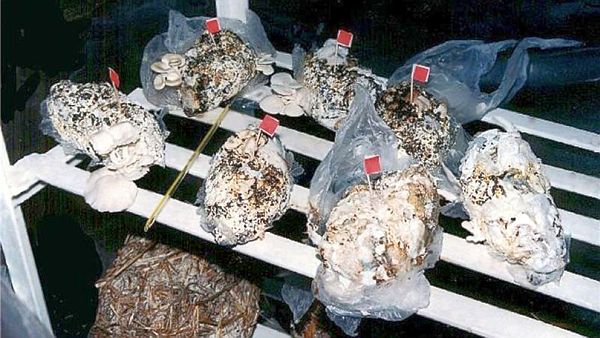Azcapotzalco, Mexico - Mexican scientists say edible fungus grown in dirty diapers could cut nappy waste by more than 80 percent.
The researchers from the Autonomous Metropolitan University in Azcapotzalco, Mexico, ground up wet diapers that had been sterilized and blended them with coffee grounds and other organic waste. They then added fungus spores and fertilizer to the diaper mixture.
The concoction was wrapped up in plastic bags and placed in a cool, damp room. Three months later, mushrooms had bloomed and the cellulose from the diapers had nearly disappeared, the researchers said in a statement posted on the university’s website.
Call these diaper delicacies butt-on mushrooms or porta-below if you must. But the environmental nightmare created by disposable diapers is no joke.
The average baby burns through more than 8,000 diapers before potty training, according to the Environmental Protection Agency. With each wet nappy weighing in at around 8 ounces, that’s more than two tons of slow-to-degrade garbage added to the landfill. And with over 4 million babies a year born in the United States alone according to the US Census Bureau, the waste is staggering.
Though lead researcher Rosa María Espinosa Valdemar and her team did sample the fungus, she stressed it’s not intended for human consumption.
"The main objective is to get rid of diapers to avoid damaging the environment more," she explained in the statement. "However, the mushrooms could be used as food supplements for cattle."
Original Story


